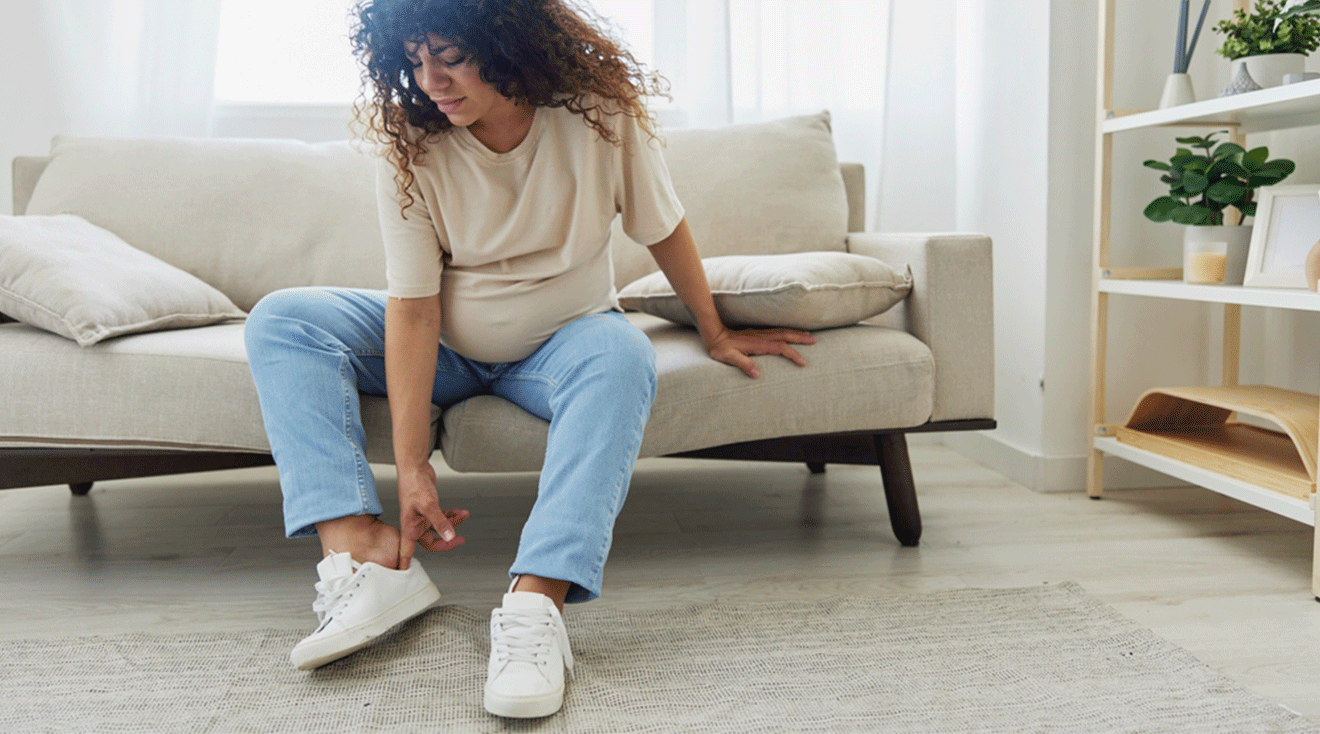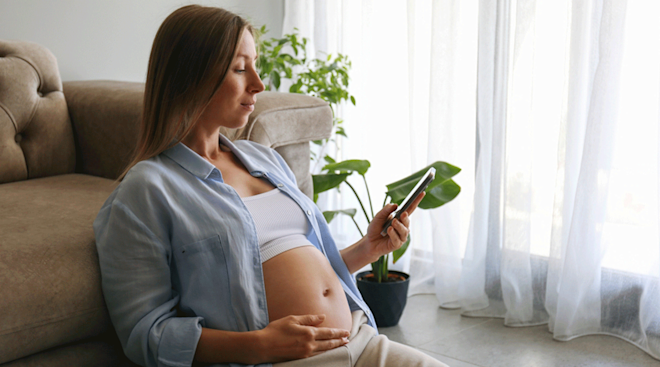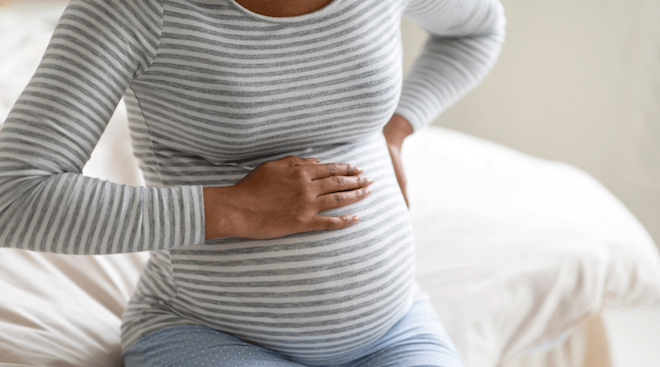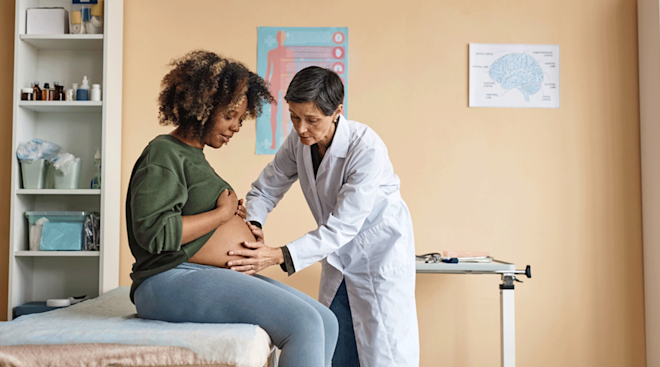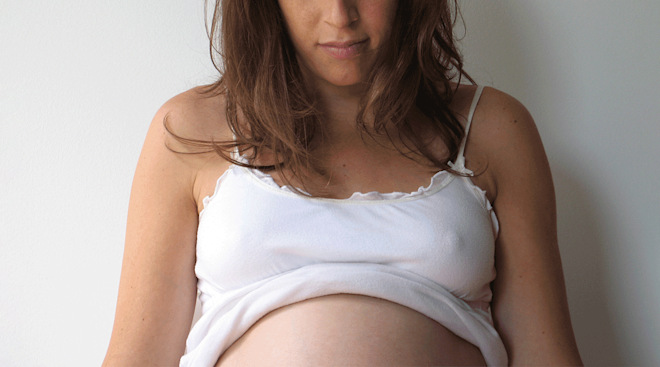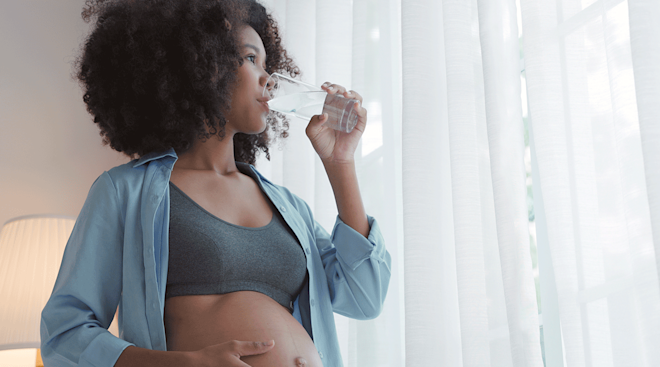Do Your Feet Actually Grow During Pregnancy?
It may seem like every part of you has grown since you got pregnant: your bump, your nose—even your feet. While you’re right to feel like everything’s expanding, this truth brings little comfort when you’re trying on your favorite pair of boots, only to find they no longer fit like they used to. Here, ob-gyns explains why feet grow during pregnancy, and what—if anything—you can do about it.
As is true with other areas of the body, your feet will most likely grow during pregnancy—often a half to a full shoe size, says Sherry Ross, MD, an ob-gyn, women’s sexual health expert and co-founder of Oneself Intimate Skin Care.
According to Mahino Talib, MD, an ob-gyn with NYU Langone Health, there are a few reasons you may experience foot growth during pregnancy. Per the experts, these include:
- Pregnancy hormones: The surge in pregnancy hormones—specifically relaxin—can cause loose ligaments in the feet, resulting in a wider and longer foot, says Meleen Chuang, MD, an ob-gyn and medical director of women’s health at the Family Health Centers at NYU Langone. It can also cause joint laxity, which makes it more uncomfortable for them to bear your body’s weight.
- Swelling: Another big cause is swelling, which is a normal pregnancy symptom and can get worse during the third trimester. However, swollen feet and ankles can also result in a larger shoe size during pregnancy, Ross says. Plus, post pregnancy feet swelling can also contribute to a larger shoe size after birth (more on this below).
- Weight gain: Weight gain is a crucial part of pregnancy and supports your developing baby. But the added weight, an enlarged uterus and consequently low back pain can all put more pressure on your feet and cause their size to increase, Ross says. This can also make previously comfortable styles of shoes (like heels) uncomfortable during pregnancy, Talib notes.
As noted, most women notice their shoe size does change during pregnancy and slightly increases. However, it may also change in the postpartum period. “The feet aren’t actually larger,” Talib explains, however, your arches may have flattened due to relaxin, joint laxity and “bearing extra weight for an extended period of time.”
Due to these changes, Chuang recommends wearing comfortable shoes in pregnancy and afterwards. “If you have sciatic pain, avoid flat shoes—it will worsen your pain. Wear comfortable sneakers [instead],” she says. “It’s [also] important to choose comfortable, supportive footwear during and after pregnancy to accommodate any changes in foot size and shape.”
As with so many aspects of pregnancy and postpartum, this will vary from person to person. Some women may find their shoe size goes back to normal a few weeks postpartum, and they can fit into their pre-pregnancy shoes. However, others may find that their increased shoe size persists. “Foot size may not fully return to normal after pregnancy for some women, as changes can be permanent due to the stretching of ligaments, swelling and lower arches,” Chuang explains.
No denying it can be frustrating, but pregnancy does change a lot about your physical self, including your foot and shoe size. It may also change some of your habits and comfort levels: “Some women will prefer to choose more sensible shoes once the beautiful realities of motherhood settle in—opting for comfort every time,” Talib says. Regardless of whether or not this is permanent, remember that this is yet another reminder of the incredible feat your body just pulled off.
Please note: The Bump and the materials and information it contains are not intended to, and do not constitute, medical or other health advice or diagnosis and should not be used as such. You should always consult with a qualified physician or health professional about your specific circumstances.
Plus, more from The Bump:
Meleen Chuang, MD, is an ob-gyn and medical director of women’s health at the Family Health Centers at NYU Langone, as well as the chief of obstetrics and gynecology at NYU Langone Hospital in Brooklyn, NY. She earned her medical degree from SUNY Stony Brook.
Mahino Talib, MD, is an ob-gyn with NYU Langone Health and a clinical assistant professor in the ob-gyn department at NYU Grossman School of Medicine. She earned her medical degree from American University of the Caribbean School of Medicine and completed her residency at New York Methodist Hospital.
Sherry Ross, MD, is an ob-gyn and women’s sexual health expert. She’s the author of She-ology: The Definitive Guide to Women’s Intimate Health. Period. and She-ology, The She-quel: Let’s Continue the Conversation. She’s also the co-founder of Oneself Intimate Skin Care and the Women's Health & Wellness School on the Mproov app. She earned her medical degree from New York Medical College and completed her residency at University of Southern California School Of Medicine.
Learn how we ensure the accuracy of our content through our editorial and medical review process.
Navigate forward to interact with the calendar and select a date. Press the question mark key to get the keyboard shortcuts for changing dates.

































